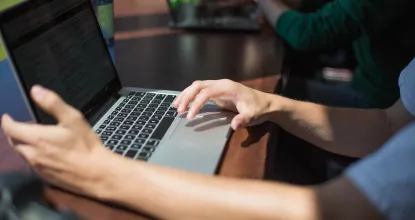What is Two-Factor Authentication? (also known as 2-Step Verification)
Two-factor authentication (2-Step Verification) adds a second layer of security to your online accounts. Verifying your identity using a second factor (like your phone or other mobile device) prevents anyone but you from logging in, even if they know your password.
Our suggested method of two-factor is using an Authenticator App. For information on how to set up "Authy" or "Google Authenticator" follow the link below.
Current systems that require two-factor:
- Banner Administrative System
- Xtender Document Imaging
- *Concur (coming February 1, 2022)
- VPN (coming February 1, 2022) - USB key will not work with this method
Currently, there are 2 different 2-step verifications on campus
- Google 2-step verification (used for all Google products including Gmail, Google Docs, Google Sheets, etc...)
- NMU 2-step verification (used for almost everything else including MyNMU, Banner, MyUser, Educat, etc...)
If you have any questions about 2-step verification, please contact the help desk (x2468)

How it works
1. Enter username and password as usual
2. Use your phone to verify your identity
3. Securely logged in
Once you've set-up Two-Factor you're ready to go: You'll login as usual with your username and password, and then use your device to verify that it's you. Your administrator can set up the system to do this via SMS, an authenticator app, one-time passcode, or a physical security key you put into your USB port.
No mobile phone? Micro Repair can provide you with a physical security key that goes into your USB port.
Why Do I Need This?
Passwords are increasingly easy to compromise. They can often be stolen, guessed, or hacked — you might not even know someone is accessing your account.
Two-factor authentication adds a second layer of security, keeping your account secure even if your password is compromised. This second factor of authentication is separate and independent from your username and password.
How Do I Set It Up?
NMU provides multiple verification options for Two-Factor Authentication. Choose the one that works best for you.
- Authenticator App - NMU recommends either the app Authy or Google Authenticator. This method works best for users with smart phones or tablets. The mobile app will be used to generate an authentication code when needed for logging in. For step-by-step instructions for setting up an authenticator app, please see: Authy for 2FA or Google Authenticator for 2FA
- USB Security Key - If you do not have access to a smartphone, Micro Repair can provide you with a physical security key that you will put into your USB port during the login process. The USB key is currently only compatible with Google Chrome. For step-by-step instructions for setting up a security key, please see: Security Key for 2FA
For quick steps for setting up two-factor Authentication with a security key, click here! - Backup Codes: Backup codes are what they say, a backup. They should not be your only form of Two-Factor set up. Backup codes can be generated in sets of 10, and each one can only be used once. We recommend that you print your backup codes, and store them in a secure location, and check them off as you use each one. If you generate a new set of 10 at any point, your old set will become inactive. Be sure to print a new set of 10, before you use your last code from a previous set. For step-by-step instructions, please see: Backup Codes for 2FA
